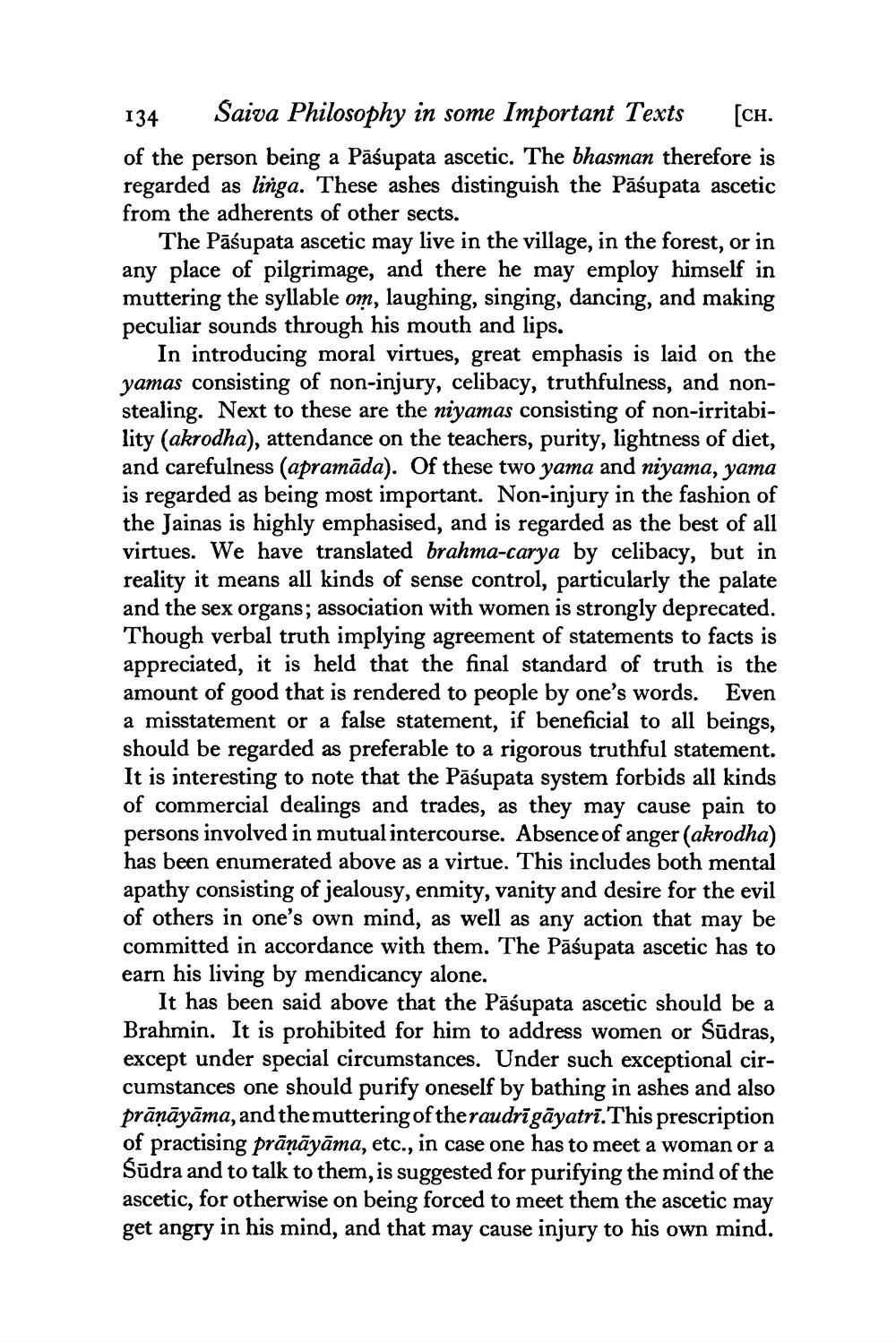________________
134 Saiva Philosophy in some Important Texts [CH. of the person being a Pāśupata ascetic. The bhasman therefore is regarded as linga. These ashes distinguish the Pāśupata ascetic from the adherents of other sects.
The Pāśupata ascetic may live in the village, in the forest, or in any place of pilgrimage, and there he may employ himself in muttering the syllable om, laughing, singing, dancing, and making peculiar sounds through his mouth and lips.
In introducing moral virtues, great emphasis is laid on the yamas consisting of non-injury, celibacy, truthfulness, and nonstealing. Next to these are the niyamas consisting of non-irritability (akrodha), attendance on the teachers, purity, lightness of diet, and carefulness (apramāda). Of these two yama and niyama, yama is regarded as being most important. Non-injury in the fashion of the Jainas is highly emphasised, and is regarded as the best of all virtues. We have translated brahma-carya by celibacy, but in reality it means all kinds of sense control, particularly the palate and the sex organs; association with women is strongly deprecated. Though verbal truth implying agreement of statements to facts is appreciated, it is held that the final standard of truth is the amount of good that is rendered to people by one's words. Even a misstatement or a false statement, if beneficial to all beings, should be regarded as preferable to a rigorous truthful statement. It is interesting to note that the Pāśupata system forbids all kinds of commercial dealings and trades, as they may cause pain to persons involved in mutual intercourse. Absence of anger (akrodha) has been enumerated above as a virtue. This includes both mental apathy consisting of jealousy, enmity, vanity and desire for the evil of others in one's own mind, as well as any action that may be committed in accordance with them. The Pāśupata ascetic has to earn his living by mendicancy alone.
It has been said above that the Pāśupata ascetic should be a Brahmin. It is prohibited for him to address women or Sūdras, except under special circumstances. Under such exceptional circumstances one should purify oneself by bathing in ashes and also prāņāyāma, and the muttering of theraudrīgāyatrī. This prescription of practising prāņāyāma, etc., in case one has to meet a woman or a Sūdra and to talk to them, is suggested for purifying the mind of the ascetic, for otherwise on being forced to meet them the ascetic may get angry in his mind, and that may cause injury to his own mind.




